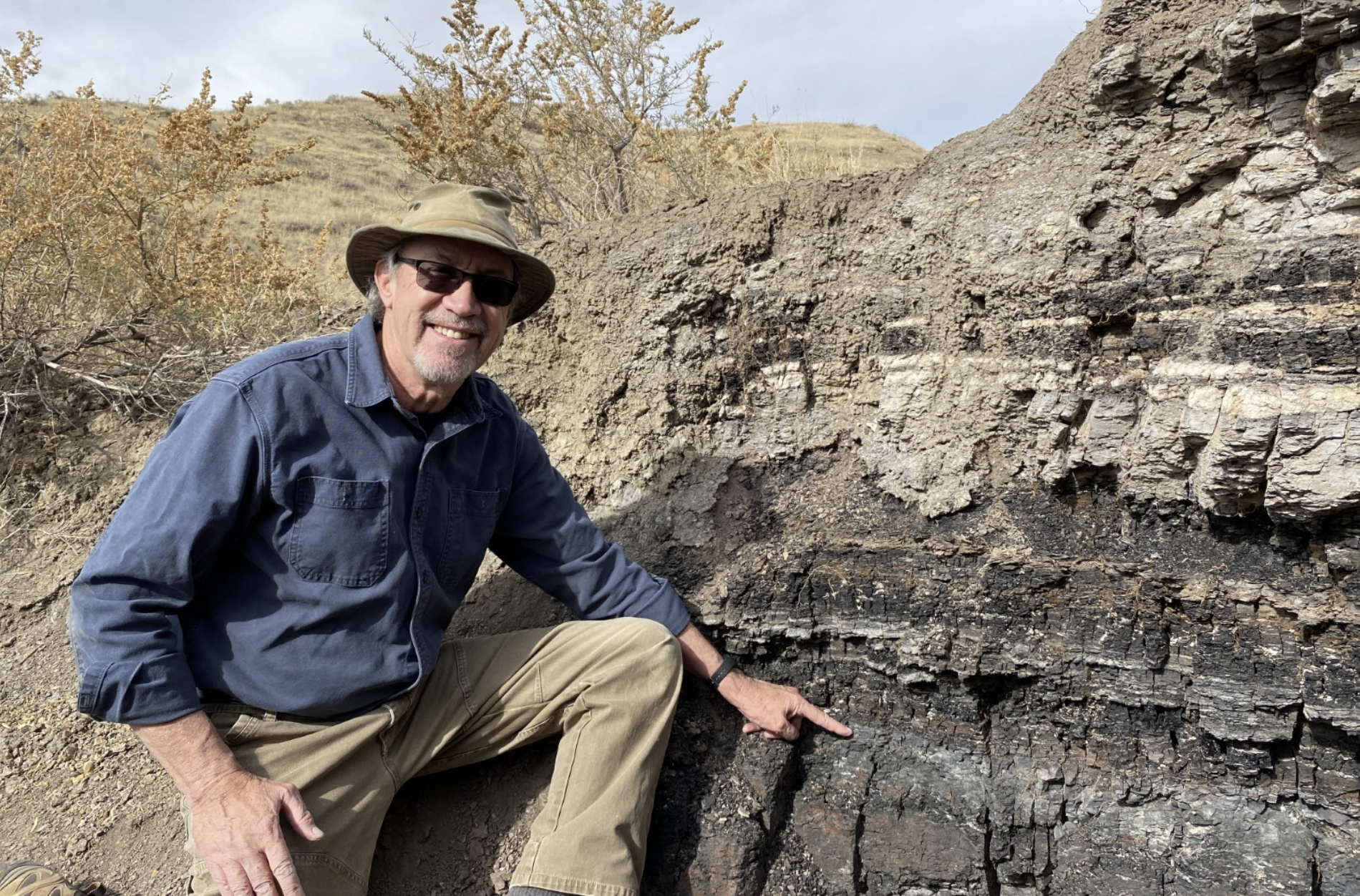
POSTED: 11/07/2022
Museum Paleontologist Receives Lifetime Achievement Award
Hoop, hoop, Hooray! Our very own, Denver Museum of Nature & Science curator, David Krause has been awarded the prestigious Romer-Simpson Medal from the Society of Vertebrate Paleontology at their annual meeting on Nov. 6. This isn’t just a regular award for this astonishing scientist, no. The Romer-Simpson Medal is the society’s highest award for sustained and outstanding scholarly excellence in the discipline of Vertebrate Paleontology.
Related Audio: Beyond Bizarre: The Discovery of Adalatherium
Dave Krause, a vertebrate paleontologist with expertise in fossil mammals, is one of the most accomplished scientists to ever have worked at the DMNS. He has published more than 130 peer-reviewed manuscripts and has received continuous funding from the National Science Foundation for his work in Madagascar since 1995, the latter of which is virtually unheard of. Krause joined the Denver Museum of Nature & Science in 2016 and is now the current Director of Earth & Space Sciences.
"When we heard he was considering coming to the DMNS, it was like hearing about Peyton Manning joining the Broncos. Dave helped elevate us to new levels,” said curator James Hagadorn.

Denver Museum of Nature & Science Vertebrate Paleontologist David Krause has his finger on the boundary between the Cretaceous and Paleogene periods, when the dinosaurs died and mammals began to diversify, at an outcrop of the D1 Sequence that is exposed along West Bijou Creek, near Strasburg in eastern Colorado, on Nov. 9, 2021. (Photo/ Tyler Lyson)
Related: Explore our amazing Vertebrate Paleontology Collection
Originally from rural Alberta, Canada, Krause spent the first 34 years of his career at Stony Brook University, where he helped refine our understanding of mammalian evolution through the study of fossils from Madagascar and many other places. His field program in Madagascar is legendary—countless jaw-dropping fossils have been discovered there and it has been the training ground for numerous graduate and undergraduate students, including other DMNS curators.
Krause has forged lifelong collaborations with colleagues in Madagascar, has helped build a paleontology program in the country with Malagasy graduate students working on Malagasy fossils and started a 501c3 not-for-profit that has built several schools and sponsored numerous medical and dental clinics in rural Madagascar
“Dave calls this ‘science with a social conscience' and it is a philosophy that the field of paleontology is just starting to think about—something Dave has been implementing for the past 30 years,” said Hagadorn. “This level of investment by paleontologists working in foreign countries is unheard of and is truly astounding.”
An international team of scientists led by David Krause, senior curator of vertebrate paleontology, have discovered a new fossil mammal, Adalatherium hui, from the island of Madagascar. First published in the prestigious scientific journal Nature, this new mammal is represented by an articulated and well-preserved skeleton, the most complete for any mammal from the entire Mesozoic of the southern hemisphere. Adalatherium, which literally means "crazy beast," belongs to a lesser known group of mammals called gondwanatherians that previously were represented by only a single skull and isolated jaws and teeth. The skeleton has many features that are uniquely bizarre, consistent with a history of isolation on the island of Madagascar for over 20 million years. Join Krause for a live presentation about this amazing discovery and learn how his work in Madagascar inspired him to give back to the local community. #fossils #AterTheAstroid #Madagascar #Bizarre
Here in Colorado, Krause has contributed to research, exploring how mammals diversified after the demise of the dinosaurs, increased the international scope of the Museum’s collections and helped develop new partnerships that bring students to the museum as interns. Not only a scholar, Krause also helped start nonprofits that invest in healthcare and education in rural communities and has been a mentor to hundreds of youth worldwide.
"I am beyond humbled and honored to be the recipient of the Romer-Simpson medal for 2022. Because of my love of the West, my journey to the DMNS was one where I thought I’d wrap up a few projects in three years and ride off into the sunset,” said Krause. “I’m now in my 7th year there and can't get enough. That’s testimony to the inspiration provided by my colleagues and our phenomenal staff of mechanical and digital preparators as well as collections managers."
More about this story:
- Learn more about David Krause, Senior Curator of Vertebrate Paleontology: https://www.dmns.org/science/earth-sciences/staff/david-krause/
- Check out Krause's research and scholarship: https://scholar.google.com/citations?user=pwmG7jEAAAAJ&hl=en
- The prestigious Romer-Simpson medal: https://vertpaleo.org/romer-simpson-medal/
